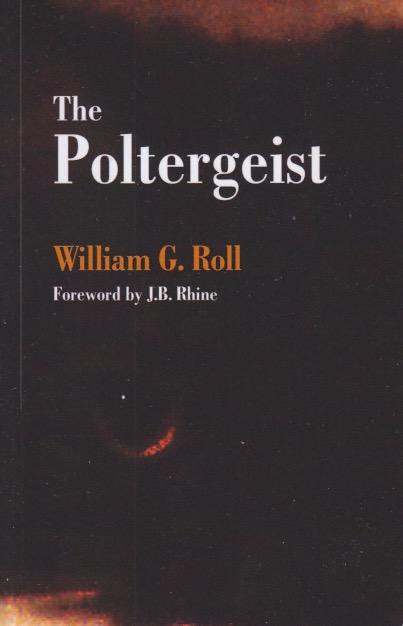
There’s a real danger, it seems, to having an open mind. We live in a world defined and classified by materialists. They hold sway not only over science and commerce, but in whether prestigious jobs are on offer. Consider the case of William Roll. Roll was a fully credentialed psychologist with an interest in parapsychology. His book The Poltergeist is a classic in the field. He’s now frequently called a “credulous investigator.” What that means, of course, is that he listened to and sometimes believed the people who reported the paranormal. For materialists that discussion is already closed. Anyone who tries to pry it back open is ridiculed and called names. (We’re all adults here, right?) Yet his classic book still gives pause.
If you actually read it, “credulous” is not a word to suggest itself. Could Roll have been tricked by clever pranksters? Yes. Most people, even clever pranksters, can. If someone is caught hoaxing a phenomenon, does that mean the whole thing is a hoax? Not necessarily. It’s here the materialists swarm. Interestingly, Roll acknowledges that there could be good psychological reasons for hoaxing after a genuine event. The person caught hoaxing perhaps realized the benefits of the attention received when something unexplained occurred, and learned how to replicate, or at least imitate it. People will do anything for attention. Roll asked a bit more finely parsed question: does hoaxing discount genuine phenomena? He even tried to get experiencers to the lab where controls could be put into place. As this book demonstrates, he doubted some of the cases and did so openly.
I became interested in Roll after watching A Haunting in Georgia. The Wyrick family maintains that the events happened (I’ve written about a book penned by two of the aunts), and they seem sincere. The problem is money. Once there’s potential money to be made the skeptics come out, claws bared. The problem is we all have to make money to survive. If that involves “capitalizing”—even that word betrays much—on weird things that happen to you, skeptics claim it’s all made up. There’s an ulterior motive. For most of us there’s an ulterior motive for going to work, too. For me, Roll appears to have been sufficiently skeptical. Statistical anomalies shouldn’t be simply dismissed. If they are, it’s possible we’re missing something important. While this book may not have aged particularly well, it is still worth reading with a mind at least a little bit open.
